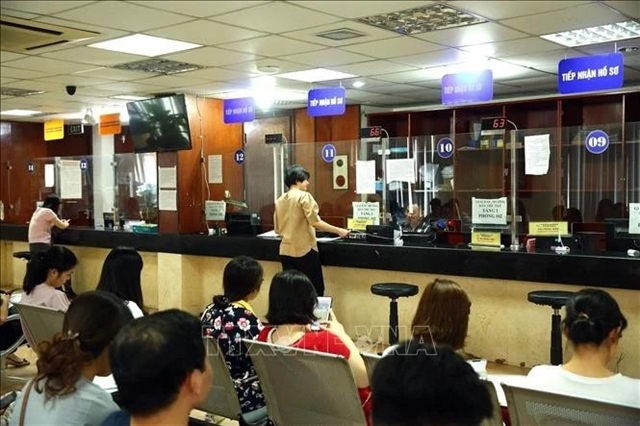Apart from promoting business development, Hanoi has implemented a range of credit policies to support production and business activities.

HÀ NỘI — Hà Nội granted business registration licences to 2,283 newly-established firms with a total registered capital of VNĐ33.7 trillion (US$1.29 billion) in May, sharply surging by 53.3 per cent in capital compared to the same period last year, according to the municipal Department of Planning and Investment.
During the same period, 700 enterprises resumed operations, up 13.6 per cent, while 1,489 suspended operations and 399 were dissolved.
Average, the capital city recorded 11,600 newly-established businesses in the first five months with a total registered capital of VNĐ106.7 trillion, down 7.2 per cent in number and 9.7 per cent in volume year-on-year.
The number of dissolved enterprises increased by 26.6 per cent in January – May, highlighting ongoing pressure on the corporate sector, especially small- and medium-sized enterprises.
Apart from promoting business development, Hà Nội has implemented a range of credit policies to support production and business activities. In May, the State Bank of Vietnam maintained its policy interest rates while directing commercial banks to flexibly adjust lending rates downward. Short-term lending rates for priority sectors remained low, averaging 3.9 per cent per annum, below the regulatory ceiling of 4 per cent.
As of May 31, total outstanding credit stood at over VNĐ4.88 trillion, up 8.32 per cent, with short-term loans rising by 10.51 per cent, indicating a focus on supporting short-term production and business activities.
In the coming time, Hà Nội aims to closely link enterprise development with improving credit efficiency and effectively addressing challenges faced by the production sector.
Attention will be paid to reforming administrative procedures, particularly loan application processes; expanding preferential credit programmes for SMEs; enhancing advisory capacity to support digital and green transformation; and strengthening labour supply-demand matching in line with market needs to promote sustainable business development. — VNS
- Tags
- firms in Hà Nội





